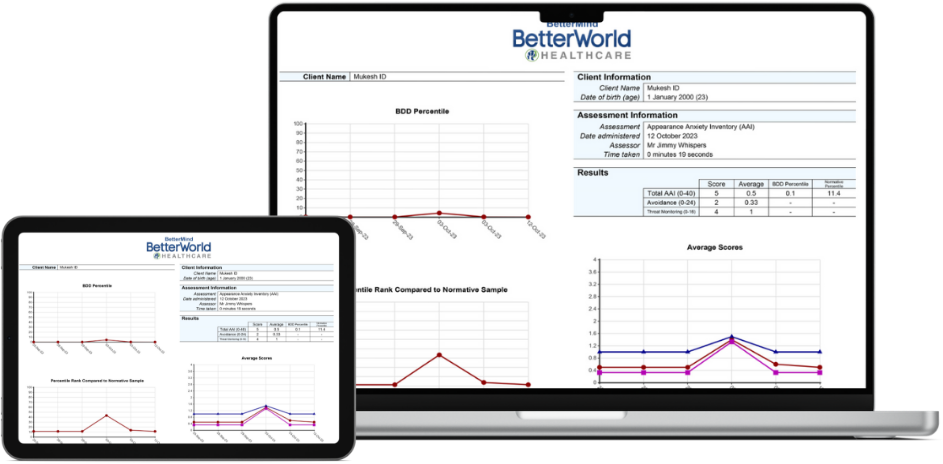Regensburg Insomnia Scale (RIS)
Assessments
Description
The Regensburg Insomnia Rating Scale (RIS) is a 10-item rating scale to assess the cognitive, behavioural, and emotional aspects of psychophysiological insomnia (PI; Crönlein et al., 2013). The scale has been validated in an adult population. Psychophysiological insomnia is a form of primary insomnia and is defined by International Classifications of Sleep Disorders (ICSD-2) as a state of “heightened arousal and learned sleep preventing associations that result in a complaint of insomnia and associated decreased functioning during wakefulness.” The specific criteria include difficulty in initiating or maintaining sleep, waking up too early, or sleep that is non-restorative or of poor quality. The sleep difficulties described above occur despite ample opportunity and circumstances for sleep, the symptoms are present for at least 1 month, and there is evidence of conditioned sleep difficulty and/or heightened arousal in bed (Perlis, and Gehrman, 2013). There have been several tools developed for the assessment of insomnia, however many do not target the psychological symptoms of insomnia or are too specific for routine clinical screening, as they measure only certain symptoms of insomnia such as pre-sleep worrying or one’s arousal state before sleep. The RIS was developed as a short scale that covers both the quantitative and qualitative aspects of sleep. It also measures four factors of sleep: 1. Poor Sleep Depth 2. Poor Sleep Quantity 3. Fearful Focus on Insomnia 4. Hypnotics and Poor Daytime Functioning
Validity and Reliability
Interpretation
Total scores range from 0 to 40 points with higher scores indicative of more cognitive, behavioural, and emotional difficulties consistent with psychophysiological insomnia. Scores from 0-12 are considered normal and scores above the cutoff (13+) are indicative of symptoms consistant with psychophysiological insomnia that warrant further investigation. A clinical percentile is shows a comparison of the total score of the respondent’s in comparison to patients with diagnosed psychophysiological insomnia (Cronlein et al., 2013). A clinical percentile of around 50 indicated that a client has scored at the average level for the clinical comparison group and would be indicative of significant cognitive, behavioural, and emotional symptoms consistent with psychophysiological insomnia. There are four factors for the RSI: 1. Poor Sleep Depth (items 3, 4, 5) – measuring sleep continuity, easy awakening, and early awakening. 2. Poor Sleep Quantity (items 1, 2, 6) – measuring sleep latency, sleep duration, and sleepless nights. 3. Fearful Focus on Insomnia (items 7, 8) – measuring thinking about sleep and fear of insomnia. 4. Hypnotics and Poor Daytime Functioning (items 9, 10) – measuring impaired daytime fitness and hypnotics intake. Average scores are presented for the four factors so that a comparison can be made (due to different numbers of questions in each factor) and which allows a comparison of relative strengths and weaknesses in the sleep factor areas (with higher average scores indicating more difficulties). The RIS can be used to monitor the effectiveness of sleep interventions such as CBT-i.
Developer
Crönlein, T., Langguth, B., Popp, R., Lukesch, H., Pieh, C., Hajak, G., & Geisler, P. (2013). Regensburg Insomnia Scale (RIS): a new short rating scale for the assessment of psychological symptoms and sleep in insomnia; study design: development and validation of a new short self-rating scale in a sample of 218 patients suffering from insomnia and 94 healthy controls. Health and quality of life outcomes, 11(1), 1-8.
Number Of Questions
10
References
Crönlein, T., Langguth, B., Popp, R., Lukesch, H., Pieh, C., Hajak, G., & Geisler, P. (2013). Regensburg Insomnia Scale (RIS): a new short rating scale for the assessment of psychological symptoms and sleep in insomnia; study design: development and validation of a new short self-rating scale in a sample of 218 patients suffering from insomnia and 94 healthy controls. Health and quality of life outcomes, 11(1), 1-8. Perlis, M., & Gehrman, P. (2013). Psychophysiological insomnia. the behavioural model and a neurocognitive perspective, 1997, 6. Morin CM. Insomnia: Psychological assessment and management: Guilford press; 1993.
Try it and see how BetterMind can enhance your practice

Support
Frequently Asked Questions
You’ve got questions, we’ve got answers. Below you can find answers to some of the most frequently asked questions. If you can’t find the answer you’re looking for, please feel free to reach out to us at info@betterworldhealthcare.com.
I can’t open test results within the Web Browser
Assessment result PDFs are opened in a new tab within the web browser. If you click the results but they do not open, your browser will be blocking the popup. To resolve this, after you have pressed the test result, look out for an alert at the top of your browser notifying you that a pop-up has been blocked, then click "Allow".
I have forgotten my password. How can I reset it?
If you have forgotten your password please press “forgot password” within the app, or on the Web Browser App login page (https://app.bettermind-app.com/login). You will receive a new temporary password via email.
Can a Practitioner access BetterMind from their Smartphone?
No, A Client /Patient can answer assessment questions on a smartphone but the Practitioners/ Users can't administer BetterMind using a Smartphone. A computer, laptop or tablet will have to be used.


